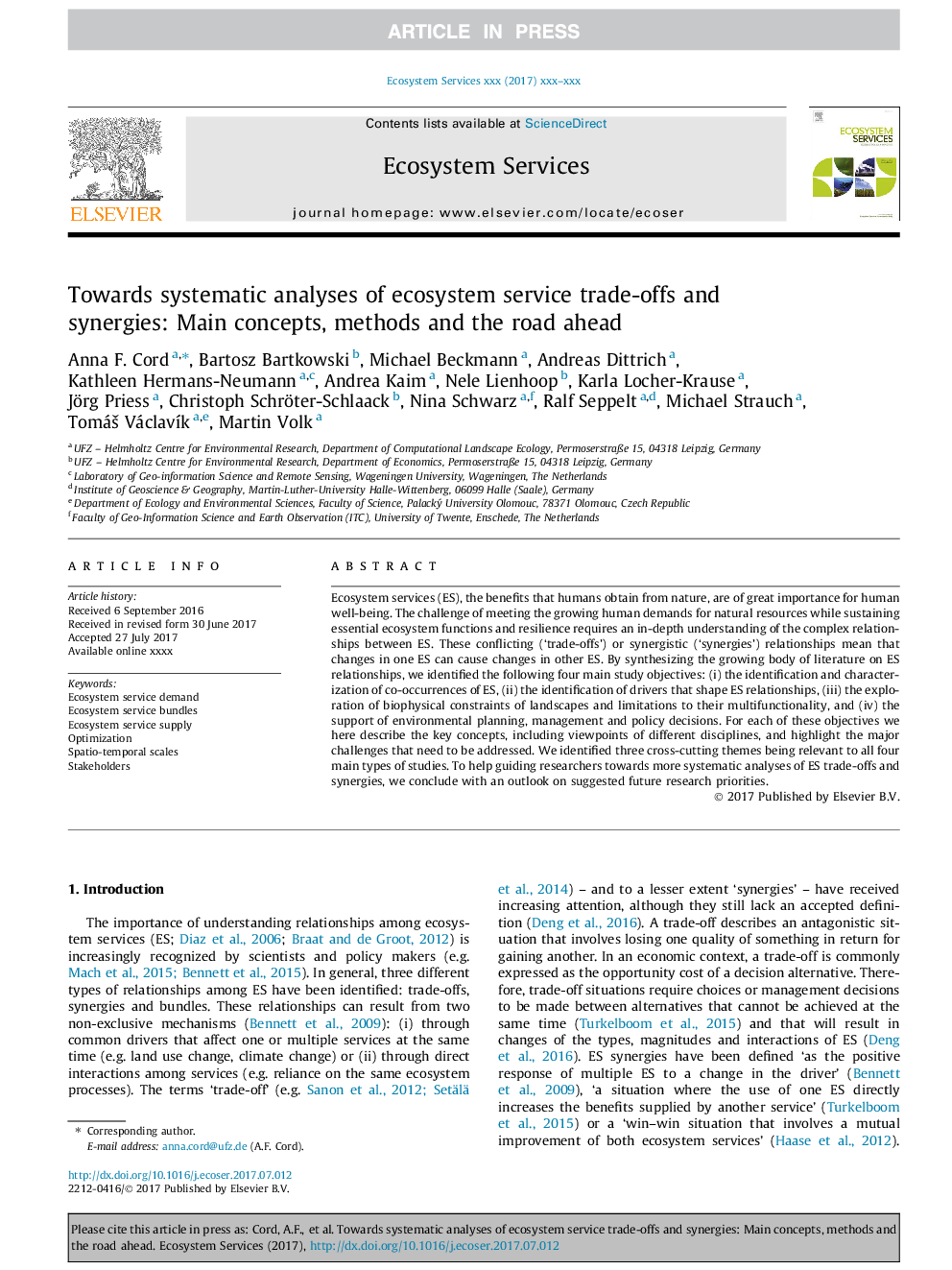| Article ID | Journal | Published Year | Pages | File Type |
|---|---|---|---|---|
| 6556485 | Ecosystem Services | 2017 | 9 Pages |
Abstract
Ecosystem services (ES), the benefits that humans obtain from nature, are of great importance for human well-being. The challenge of meeting the growing human demands for natural resources while sustaining essential ecosystem functions and resilience requires an in-depth understanding of the complex relationships between ES. These conflicting ('trade-offs') or synergistic ('synergies') relationships mean that changes in one ES can cause changes in other ES. By synthesizing the growing body of literature on ES relationships, we identified the following four main study objectives: (i) the identification and characterization of co-occurrences of ES, (ii) the identification of drivers that shape ES relationships, (iii) the exploration of biophysical constraints of landscapes and limitations to their multifunctionality, and (iv) the support of environmental planning, management and policy decisions. For each of these objectives we here describe the key concepts, including viewpoints of different disciplines, and highlight the major challenges that need to be addressed. We identified three cross-cutting themes being relevant to all four main types of studies. To help guiding researchers towards more systematic analyses of ES trade-offs and synergies, we conclude with an outlook on suggested future research priorities.
Keywords
Related Topics
Life Sciences
Agricultural and Biological Sciences
Agricultural and Biological Sciences (General)
Authors
Anna F. Cord, Bartosz Bartkowski, Michael Beckmann, Andreas Dittrich, Kathleen Hermans-Neumann, Andrea Kaim, Nele Lienhoop, Karla Locher-Krause, Jörg Priess, Christoph Schröter-Schlaack, Nina Schwarz, Ralf Seppelt, Michael Strauch, TomáÅ¡ VáclavÃk,
